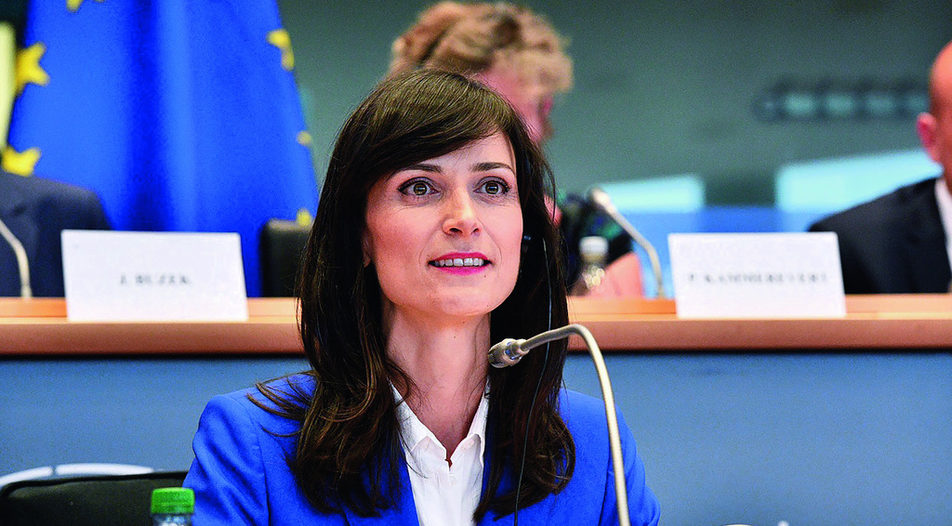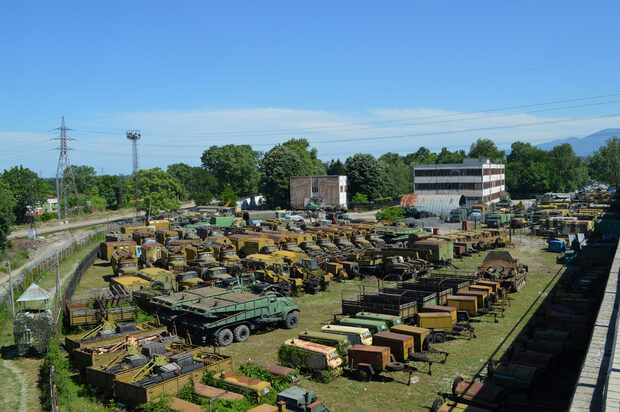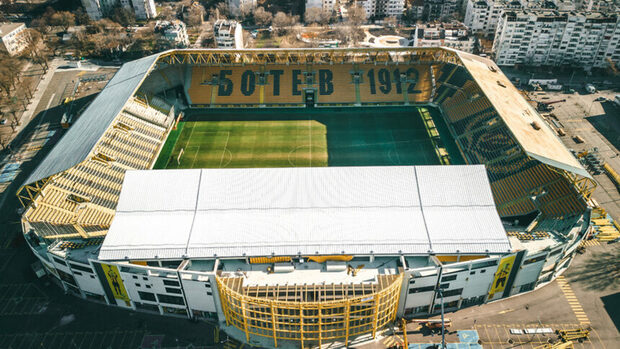An anecdote among eurocrats in Brussels has it that Martin Selmayr, chief of staff of European Commission president Jean-Claude Juncker and something like his personal Cardinal Richelieu, when riled by a Commissioner-designate who was slow to toe the line, threatened to appoint him as Commissioner for Youth and Sports - a position always regarded as a dead-end in the EU bureaucracy.
In the new European Commission led by Ursula von der Leyen, the Bulgarian commissioner-designate Mariya Gabriel received a portfolio with a much longer list of responsibilities: innovation and research, education, culture, youth and sports. But the feeling that Bulgaria has been effectively downgraded lingers. Mr Borissov didn't help with his bombastic comments that Sofia would be in charge of an "extremely important and modern area".
On the one hand, Ms Gabriel's position in the new European Commission feels weak. Especially when one considers that back in July, when EU leaders discussed appointments to the five key positions in Brussels - the presidents of the European Commission, the European Council and the European Parliament, the governor of the European Central Bank and the EU's High Representative for the Common Foreign and Security Policy, Bulgaria's Kristalina Georgieva was a contender for three of them. The contrast cannot be starker. Innovation and Youth, the official title of Ms Gabriel's new position, is a nice portfolio, with a lot of administrative responsibilities and a vast budget but with zero political weight.
On the other hand, with Mr Borissov's obvious aversion to every sensitive position in Brussels, such as foreign policy, and his constant talk about access to funds to manage (talk that is not left unnoticed), Ms Gabriel's new position is not that bad. If nothing else, it shows that the new Commission president Ms Von der Leyen trusts Ms Gabriel's administrative capabilities. And if Ms Gabriel can launch a debate on the moribund state of Bulgarian university-level education, this can only be to the good.
Is it an important position?
The Innovation and Youth portfolio until now has been divided between two commissioners. The position had been one until 1999, but it was subsequently split to accommodate commissioners from the new member states. Therefore, Ms Gabriel will have significantly more responsibilities than her predecessors had in the last 15 years.
Three EU programs will be under her auspices: Erasmus II, Creative Europe and Horizon, with a total budget of approximately 140 billion euro for the period 2021-2027. By comparison, the Digital Europe program which was established while Ms Gabriel was in charge of the digital economy in the outgoing Commission, has 8.2 billion euro earmarked for the next seven years. At the moment, there are no expectations for major policy initiatives in the field of innovation and youth, except for the proposed major increase of funding in the Erasmus II student exchange program and Horizon research programs. Both, however, are non-controversial and were among the first items in the 2021 - 2027 EU budget negotiations to be settled preliminary this year.
"From each according to their ability"
Formally, the Bulgarian commissioner will manage three programs with a combined budget that is the third-largest expenditure item in the EU after regional policy and agriculture. The difference, however, is that in both areas the regulations governing their management in 2021-2027 are yet to be adopted and the commissioners in charge will have an extremely strong influence on the future implementation of the common agricultural policy and the use of EU regional development funds.
At the same time, while there is less funding available for the digital portfolio, policy in this area is expected to be one of the major EU concerns in the coming years. That is why the digital area will be overseen by the Executive Vice-President Margrethe Vestager, who will become something of a "Brussels' digital tzar". She remains Commissioner for Competition, a position allowing her to continue slapping fines on giants like Google, Apple or Amazon and giving her enough ammunition to make her future regulatory policy proposals even more credible. Her antitrust zeal prompted US President Donald Trump to say that "she hates the US and is probably the worst person whom I met".
The daily work on EU digital single market issues will be the responsibility of French commissioner Sylvie Goulard. It is hardly a coincidence. Paris is - to put it mildly - in hot water with Washington because of the proposed new tax on revenues of the digital giants.
Against this background, Ms Gabriel had little chance of retaining her previous position. The former Bulgarian member of the European Parliament from the ruling GERB party became commissioner for the digital economy and society in 2017 after her predecessor as Bulgarian commissioner Kristalina Georgieva decided to return to the World Bank. By this time, three-fifths of the European Commissions' mandate had passed. All legislation proposed by the European Commission had already been tabled, thus only allowing her to participate in the negotiations with the European Parliament, but not to have a special influence or leave her own imprint. As a commissioner, she is remembered mainly by Brussels' attempt to stop fake news. Overall, however, efforts have focused on self-regulation of online platforms, and the topic has gradually waned.
In a nutshell, Maria Gabriel's new post is a positive vote by Ursula von der Leyen on her ability to oversee a large portfolio of policies. The appointment of Ms Gabriel as commissioner for Innovation and Youth also reflects Sofia's potential and its influence in Brussels, which prevents Sofia from claiming a heavyweight portfolio.
An anecdote among eurocrats in Brussels has it that Martin Selmayr, chief of staff of European Commission president Jean-Claude Juncker and something like his personal Cardinal Richelieu, when riled by a Commissioner-designate who was slow to toe the line, threatened to appoint him as Commissioner for Youth and Sports - a position always regarded as a dead-end in the EU bureaucracy.
In the new European Commission led by Ursula von der Leyen, the Bulgarian commissioner-designate Mariya Gabriel received a portfolio with a much longer list of responsibilities: innovation and research, education, culture, youth and sports. But the feeling that Bulgaria has been effectively downgraded lingers. Mr Borissov didn't help with his bombastic comments that Sofia would be in charge of an "extremely important and modern area".












